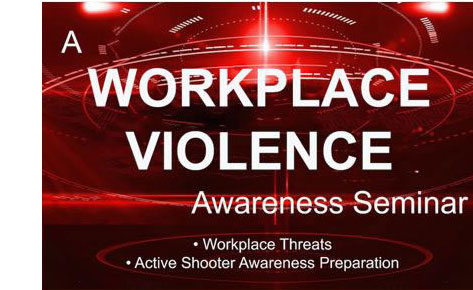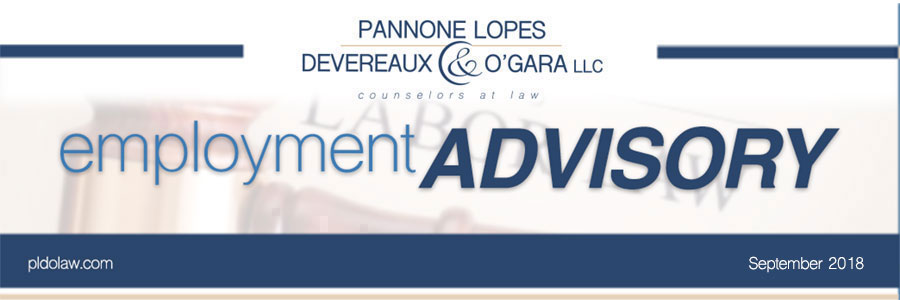 |
PRE-EMPLOYMENT DRUG SCREENING SUBJECT TO EEOC CHALLENGES
In the past year, the Equal Employment Opportunity Commission (EEOC) has filed lawsuits challenging employer policies related to pre-employment drug testing and screening. Pre-employment drug testing is a common practice in many industries. In addition, many employers require pre-employment physicals that may screen applicants for prior drug use. Individuals participating in drug recovery programs are considered disabled under state and federal law. The EEOC has worked to publicize this fact by bringing suit against employers that fire or refuse to hire recovering drug users. In the past year, the EEOC has filed suit contending that an employer has improperly relied on drug test or screening to deny employment to an individual that is in recovery.
 In EEOC v. Steel Painters, Inc., C.A. No. 1:18-cv-00303 (E.D. Tex.), the EEOC sued an employer alleging that it violated the Americans with Disabilities Act when it terminated an employee that was participating in a drug treatment plan. The employee, a painter, had an opioid medication dependency. The employee was enrolled in a dependency program that included use of methadone. In EEOC v. Steel Painters, Inc., C.A. No. 1:18-cv-00303 (E.D. Tex.), the EEOC sued an employer alleging that it violated the Americans with Disabilities Act when it terminated an employee that was participating in a drug treatment plan. The employee, a painter, had an opioid medication dependency. The employee was enrolled in a dependency program that included use of methadone.
Shortly after starting his position, the employee was given a pre-employment drug test. Because of his methadone use, the drug test came back positive. The employee provided the lab performing the test with documentation that he participated in supervised methadone treatment. The test result was then changed to “negative.” At that point, the employer, Steel Painters, insisted that the employee provide a specific form to be completed by the physician at the drug treatment center. The center had a practice of not completing such forms, but offered to provide a one-paragraph letter confirming that the employee received methadone. The employee took the one-paragraph letter to his employer, but Steel Painters promptly rejected the letter as it did not comply with its request for the specific form. The employee was then fired, allegedly for having failed to secure the required documentation.
The EEOC sued Steel Painters in federal court alleging that the employer’s practices discriminate against disabled individuals and in particular, discriminated against the employee whose disabilities necessitate the use of methadone. By way of relief, the EEOC is seeking a permanent injunction blocking the company from discriminating against workers using methadone pursuant to a supervised treatment plan. The EEOC also seeks to recover compensatory and punitive damages. The case is a typical example of the EEOC’s enforcement efforts regarding pre-employment drug testing.
In another recent case that highlights EEOC’s enforcement policy, EEOC v. M.G. Oil Company, C.A. No. 4:16-cv-04131 (D. S.D.), the parties ultimately settled the EEOC’s claims, resulting in a $45,000 payment and an agreement by the employer to change its testing and reporting policies. The action, brought in federal court, alleged that the employer refused to hire an individual that tested positive for a legal drug. The applicant offered to provide documentation concerning her prescription for the medication, but the employer continued to refuse to hire her. The employer also had a policy of requiring all employees to report any prescription drug use.
As part of its settlement with the EEOC, the employer agreed to cease requiring employees disclose legal drug use unless there is a “reasonable suspicion” the drug would impact job performance. In addition, the employer agreed to end its practice of refusing to hire individuals that used certain lawful drugs.
Last year, in EEOC v. Volvo Group America, LLC, C.A. No. 1:17-cv-02PP9, the EEOC sued Volvo in federal court after it withdrew an offer of employment to an applicant. The applicant disclosed that he was taking Suboxone, a powerful drug used in the treatment of opioid dependence. The disclosure was made to a company nurse, who informed the applicant that the company considered the drug to be “worse than heroin.” The offer of employment was withdrawn. In response, the EEOC sued Volvo, alleging it had ignored the applicant’s qualifications and discriminated against him because he was a recovering drug user. Ultimately, the matter was settled, with Volvo agreeing to pay $70,000 and furnish “significant equitable relief” to settle the claim.
For employers, the issue of pre-employment drug screening continues to be a minefield. Individuals that are impaired because of substance abuse present a danger to themselves, co-workers and undermine safe and efficient operations. That, however, does not give employers a blank check to refuse to hire individuals that may have a history of substance abuse. To the extent employers are conducting pre-employment screenings, it is necessary to engage in an interactive dialogue with an applicant that is in recovery regarding the use of a legal drug.
[back to top]
REGISTER TODAY: WORKPLACE VIOLENCE AWARENESS SEMINAR, “WHAT WOULD YOU DO?”
There are real life legal, financial and insurance implications to workplace violence emergencies. These can range from an organization’s liability exposure for not properly protecting its employees or guests, to HR support and training pre and post event, as well as crisis support and recovery strategies. Preparation has never been more important.
 To help organizations be better prepared in the face of a workplace violence emergency, PLDO has teamed up with Starkweather & Shepley Insurance Brokerage Inc., Neighborhood Health Plan of Rhode Island and Philadelphia Insurance Companies to present a workplace violence awareness seminar, What Would You DO? on Tuesday, October 2, 2018 from 8 a.m. to 10 a.m. at the Crowne Plaza, 801 Greenwich Avenue in Warwick. For more information and to register for the event, please click here. To help organizations be better prepared in the face of a workplace violence emergency, PLDO has teamed up with Starkweather & Shepley Insurance Brokerage Inc., Neighborhood Health Plan of Rhode Island and Philadelphia Insurance Companies to present a workplace violence awareness seminar, What Would You DO? on Tuesday, October 2, 2018 from 8 a.m. to 10 a.m. at the Crowne Plaza, 801 Greenwich Avenue in Warwick. For more information and to register for the event, please click here.
PLDO Principal William E. O’Gara will be a featured speaker, along with other experts who will provide the information and guidance to ensure that you and your organization are better prepared and will recover from an unexpected event. Attorney O’Gara leads the firm’s Employment Law, Litigation and Mediation teams. On a daily basis, he works with clients on employment issues that arise without warning and that employers confront. With over 25 years of experience, he has handled a wide range of cases including employment discrimination, wage and hour claims and sexual harassment claims. He assists clients in matters ranging from contract negotiations to arbitration and has successfully mediated a wide array of disputes both at the pre-litigation stage and before trial. In addition, Attorney O'Gara conducts workplace investigations and provides training for managers and supervisors on employment-related issues. Among the industries he represents include health care, education, social service providers, construction, warehousing and distribution, technology and others. To contact Attorney O’Gara, call 401-824-5100 or email wogara@pldolaw.com.
[back to top]
|
 |





 In EEOC v. Steel Painters, Inc., C.A. No. 1:18-cv-00303 (E.D. Tex.), the EEOC sued an employer alleging that it violated the Americans with Disabilities Act when it terminated an employee that was participating in a drug treatment plan. The employee, a painter, had an opioid medication dependency. The employee was enrolled in a dependency program that included use of methadone.
In EEOC v. Steel Painters, Inc., C.A. No. 1:18-cv-00303 (E.D. Tex.), the EEOC sued an employer alleging that it violated the Americans with Disabilities Act when it terminated an employee that was participating in a drug treatment plan. The employee, a painter, had an opioid medication dependency. The employee was enrolled in a dependency program that included use of methadone.